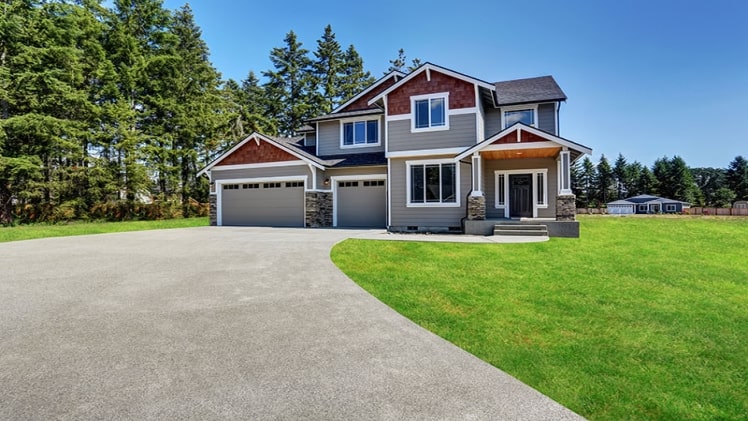If you’re thinking about replacing your old asphalt driveway, why not opt for a concrete driveway? Concrete driveways have several advantages. They are durable, environmentally friendly, and less expensive than asphalt. If you’re still undecided, keep reading to learn more about the benefits of concrete driveways. Plus, learn how to install concrete driveways yourself! Listed below are some tips and tricks for installing new concrete driveways.
Less expensive than asphalt:
One of the most common questions people ask when comparing the cost of asphalt and concrete driveways is: which is cheaper? It depends on the thickness of the driveway. A 2-inch thick asphalt driveway will cost around $100, while a 4-inch thick driveway will cost about $80. Both of these options have their advantages and disadvantages. The price of an asphalt driveway depends on the climate, usage, and other factors. For example, an average-sized driveway will require 7.5 to 15 tons of asphalt. Cold mix asphalt is also acceptable and will cost between $10 and $50 per bag. Cold mix asphalt is used primarily for minor repair purposes.
Compared to concrete, asphalt has numerous advantages. It is cheaper to produce than concrete and can be used almost immediately after installation. Asphalt also needs resealing every three to five years, making it less durable than concrete. Concrete requires less maintenance and can last for fifty years, while asphalt needs resurfacing every three to five years. Additionally, asphalt doesn’t offer as many aesthetic options as concrete does, so it’s less cost-effective in the long run. Finally, asphalt has unsightly unfinished edges, so you’ll have to replace it often.
Longer lasting:
For long-lasting concrete, choose the proper mix. The strength of a concrete driveway should be between three and four pounds per square inch (psi). In most climates, this value is around three to four inches higher. Depending on the climate, you can use a different mix. A colder climate needs a more robust concrete mix. The right mix is essential for durability and safety since a driveway is exposed to vehicle traffic and freeze-thaw cycles. You can use a high-performance concrete mix with a six percent air-entrainment value for even longer life. This feature creates tiny bubbles in the concrete mix and gives the water inside the concrete a place to escape when it freezes.
A concrete driveway should last for at least twenty years if maintained properly. If pits and cracks are interconnected, complete replacement is required. Other signs that your driveway may need replacing are foundation lifting and numerous potholes on its surface. Marstellar Oil and Concrete can help you with your concrete needs. They offer a wide variety of options and can typically complete your order within a single day. A concrete driveway can also increase the value of your property.
Low maintenance:
One of the most appealing aspects of a low-maintenance concrete driveway is its durability. This type of concrete is available in several different designs. These are highly stain-resistant and anti-slip, and they require little maintenance. You can choose to have a slate texture applied to your driveway. These driveways will look great, and they require little maintenance, as long as you regularly jet wash them, hose them down, and sweep them.
Sealing is the most important part of driveway maintenance. While it can be applied by a roller or a brush, applying a sealant to a concrete driveway can prevent cracks and oxidation. This surface should be sealed every two years to prevent deterioration due to moisture, freeze-thaw cycles, and the weather. Adding a sealant to the concrete can help protect it from stains and oil stains.
More eco-friendly:
There are several benefits to building a new concrete driveway, and one of them is eco-friendliness. Concrete and asphalt manufacturing releases harmful carbon emissions and pollutants into the atmosphere. Both are composed of petroleum byproducts, and their production requires environmentally unfriendly drilling and processing. Moreover, asphalt doesn’t let rainwater filter through it, so it doesn’t benefit the environment. Moreover, concrete and asphalt are expensive. However, they’re easy to maintain. Moreover, alternative eco-friendly driveway materials are coming to market.
In addition to being more environmentally friendly, concrete can last for decades, so it is a good option for people who want a durable and long-lasting driveway. However, building a new concrete driveway can be a labor-intensive task, and you need to have the right equipment and know-how to do it correctly. To make things easier for you, we have listed a few steps you can take to build a new eco-friendly driveway.

